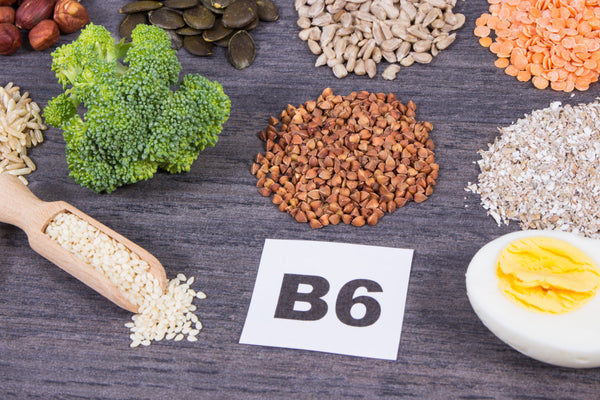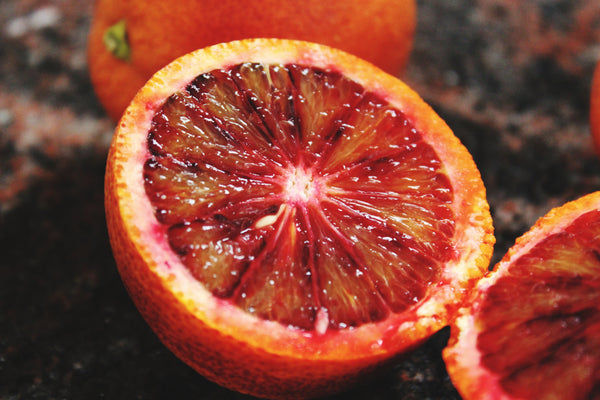
Iron For Children: Benefits, Dosages and Side Effects

Vitamins and minerals are necessary for the health of people of all ages. Parents are very concerned about their children's vitamin and mineral intake.
Parents want to make sure their child receives everything they need to grow and develop.
When picky eaters have difficulty incorporating natural foods rich in vitamins and minerals into their diet, parents often turn to supplements to help fill the gap.
Iron is essential for body growth, and many children's multivitamins do not contain iron. This may confuse parents.
There's a good reason why iron doesn't appear on the ingredient lists of many multivitamins formulated for children. On the other hand, there are also good reasons why a child might need extra iron.
Before starting to add iron to your child, talk to your pediatrician. Only pediatricians know whether iron supplementation is beneficial. Otherwise, it may cause unpleasant side effects which can be easily avoided.
The Importance of Iron
Iron is very important for the development and growth of the human body. Children grow and develop every day, and iron is undoubtedly necessary to facilitate this natural process.
Iron is needed for the transportation of oxygen throughout the body through red blood cells and the protein myoglobin. The body needs constant circulation of oxygen-rich blood to heal, grow and strengthen itself.
The body also uses iron in the manufacture of certain hormones, and children will begin to make more hormones as they approach their teenage years.
How Much Iron Do Children Need?
The amount of iron that children need will change throughout the various stages of their lives.
Iron is very important in infancy and the need will gradually decrease until the beginning of puberty, where their need becomes greater during this transformation period.
- 7 months to 1 year - 11mg daily
- 1 to 3 years - 7mg daily
- 4 to 8 years - 10mg daily
- 9 to 13 years - 8 mg/day
- Outside - 11 mg daily for boys, 15 mg daily for girls
To put these numbers into perspective through diet, many foods can help children meet their iron needs through diet. Serving more of these foods can help provide your child with valuable iron.
- 3 ounces lean ground beef - 2.2 mg iron per serving
- cup of tofu - 6.6 mg of iron per serving
- 3 ounces turkey - 1 mg iron per serving
- 3.5 ounces raw spinach – 2.7 mg iron per serving
- 1 ounce raw nuts - 1.3 mg iron per serving
- 3 tbsp boiled lentils - 1.2 mg iron per serving
- 1 medium white potato - 0.6 mg iron per serving
Cases Where Children May Need More Iron
While general guidelines are helpful in helping parents meet their child's general dietary needs, every child is different.
It's best not to assume, especially if you have concerns about your child's well-being.
If your child lives with a condition that affects the way their body receives or uses iron, their needs may be different.
The developmental needs of girls and children on plant-based diets may also require special consideration.
Puberty Girl
There is no definite time at which girls start having regular menstrual periods.
This usually happens anywhere between age 10 and age 15 , but that doesn't mean that girls as young as 8 or as old as 17 won't start menstruating for the first time.
You should always talk to your pediatrician when she gets her first period, but it's even more urgent to make an appointment if her period is early or late.
Girls who are menstruating may need higher amounts of iron than girls who are not menstruating.
Menstruation involves a small amount of blood loss, but the body does expel the blood and uses it differently during that time. Additional iron may be required.
Children with Absorption Problems
Children can have health conditions that affect the absorption or have absorption problems as a result of surgical procedures.
If your child has absorption problems, they will likely have a hard time absorbing more than just iron. Absorption problems require constant medical supervision to ensure the child's needs are adequately met.
Children with Iron Deficiency Anemia
Iron deficiency anemia occurs when the body does not receive enough iron to produce enough red blood cells.
Children with iron deficiency anemia may appear tired or weak frequently. They may have pale skin and often feel cold.
Children with iron deficiency anemia tend to have a poor appetite. They may have difficulty breathing or feel dizzy, two symptoms that indicate that the situation is an emergency.
Iron deficiency anemia requires proper medical diagnosis and treatment. If you suspect your child has iron deficiency anemia, make an emergency appointment with a healthcare provider. Do not try to treat the condition at home with iron supplements.
Children With Food Allergies
Red meat, poultry, fish, shellfish, nuts (such as peanuts), eggs, and dairy products are valuable sources of iron. This may not be a dietary choice for some children.
Children raised in plant-based households and children with allergies or intolerances to certain foods may have difficulty getting the required amount of iron through their regular diet. Talk to your pediatrician about supplementation.
It is important to note that tofu and lentils are excellent sources of iron. Children in plant-based households who can safely eat lentils and soy products should have no trouble meeting their needs without supplements.
Iron Side Effects Can Be Serious
Iron is very important, but the body does not need much. Children may need more than 1,000 mg of calcium per day, but iron requirements are usually below 15 mg daily. A little goes a long way in a body that functions as expected.
If your child gets too much iron in their diet or through their supplements, they can have negative side effects.
- Stomach discomfort
- Nauseous
- vomit
- Diarrhea
- Constipation
- High blood sugar
Parents are most likely to notice their children having stomach problems when they have too much iron. Diarrhea and vomiting can lead to dehydration and electrolyte imbalance. Constipation poses its own set of challenges to the young digestive system.
These side effects can usually be avoided if iron is only given as directed by a doctor.
It is especially important to monitor children who are taking iron supplements as needed medically and children who have a dietary predisposition to meat or other foods that are naturally rich in iron.




